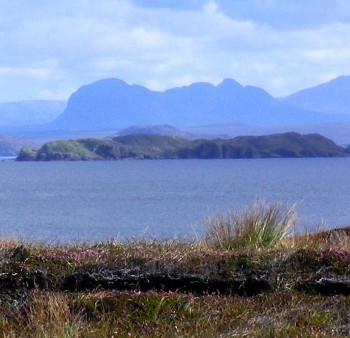Volunteers vital in continued mainland mink removal
Posted: Wednesday 5 March, 2014 @ 17:48:16

One of the largest volunteering projects in Scotland aimed at removal of non-native mink has been praised for its pioneering work.
The Scottish Mink Initiative (SMI) has more than 480 dedicated volunteers.
Mink wreak havoc on water vole, ground nesting birds and native fish and the SMI is focused on vital work in north Scotland and the Highlands.
Launched in 2011, the SMI comprises Rivers and Fisheries Trusts of Scotland (RAFTS); the Scottish Wildlife Trust; the University of Aberdeen; Scottish Natural Heritage (SNH); Cairngorms National Park Authority (CNPA), and more than 13 other organisations.
Now in the second phase of the project, mink monitoring rafts and volunteer networks are coordinated by local fisheries trusts.
SMI Project Manager, Chris Horrill, stressed that although anecdotal reports are encouraging, more work is required to rid these areas of breeding American mink.
“The SMI has built and expanded on the success of volunteer-based mink control in Scotland by establishing a network of more than 480 volunteers and control across 30,000 km² of northern Scotland,” he confirmed.
“We have seen less captures and sightings, and work by the University of Aberdeen in addition to anecdotal reports of the recovery of previously locally extinct water vole populations within the SMI area, suggest it has significantly impacted on American mink populations.
“However, we should not become complacent as we continue to face challenges to remove the last remnants of mink – especially in remote areas and there is always the issue of preventing re-colonisation.
“It is therefore imperative that we continue to maintain and expand our efforts.”
Professor of Ecology at the University of Aberdeen and advisor to the project, Xavier Lambin, said: “Vast swathes of the project area have not had resident mink impacting the native fauna for months or years in some places.
“This is a huge success and the start of a gradual restoration process of riparian ecosystems. There is already some evidence that water voles, one of the species most severely affected by American mink, have started reclaiming their former range.
“While for now recolonisation of water voles is restricted to those places that could be reached by colonists spreading from a few hilltop strongholds which escaped mink predation (such as in upper Donside and Deeside where spectacular recoveries have taken place), the process of recolonisation and restoration of the ecosystem will gather pace as an increasing fraction of the vast amount of suitable but empty habitat will become within reach of recolonists dispersing in a stepping stone manner.
“As the project continues, we expect that species that have been absent will again become part of the riparian ecosystem and the efforts of so many volunteers will be rewarded.”
For more information please contact:
Peter Cunningham, Wester Ross Fisheries Trust,
T: 01445 712 899 E: info@wrft.org.uk
Ann-Marie MacMaster, Scottish Mink Initiative Coordinator
T: 07825 186043 E: ann-marie@rafts.org.uk